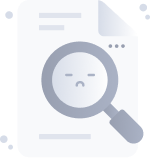
- Overview
- Curriculum
- Discussion
- Review
- Instructor
-
Split-Screen Responsive Design
-
Navigation for List and Detail on different pages
-
Split-Screen List and Detail pages on the same screen
-
Portrait and Landscape modes
-
Phones, Tablets, Desktops, and the Web
-
Layouts according to available device size
-
Switch from mobile detail page to Split-Screen layout while resizing
-
Dark and Light mode
-
Reusable logic and widgets
-
Nested Navigation
-
App-wide state management
-
Basic Flutter and Dart knowledge
-
Easily create Mobile, Tablet, Desktop, and Web Responsive Split-Screen Design in Flutter
-
Beginner and experienced developers
What are our objectives?
In this course, you'll use Flutter/Dart to develop a responsive app supporting a Split-Screen List/Detail layout from a single code base supporting multi-platform Phone, Tablet, Desktop, and Web.
For instance, you'll create the Split-Screen List/Detail on the same screen depending on device, and navigation from List to Detail page on phones.
Next, the Desktop and Web requires to handle both Mobile, Desktop, and Web responsive layout when user changes the size of the app’s screen.
Guess what? No third-party plugins or packages needed.
You’ll start by analyzing the app’s common features, reusable logic, and widgets.
You’ll implement Dark and Light Mode, global State Management, and Responsive Layout Builder widget.
The Phone app navigates from the List page to the Details page.
For the Tablet, Desktop, and Web app, you’ll create a Split-Screen layout showing the List and Detail pages on the same screen.
Build beautifully designed multi-platform application using Flutter and Dart
Learn UI/UX techniques to wow the user’s experience and keep the company’s branding consistent between platforms
Use the latest cross-platform Flutter framework and Dart language to create pixel perfect UI designs and adaptivity
Create reusable widgets
Use Layout Builder to create a responsive layout for mobile and web
Separate concerns between UI, state, and business logic
Learn how to use State Management without using third party libraries
Learn how to create reactive screens to refresh content
Custom navigation between platforms
Create beautiful navigation transitions combining Hero and Navigation transition
Why Flutter?
Flutter transforms the development process. Build, test, and deploy beautiful mobile, web, desktop, and embedded experiences from a single codebase.
Flutter is an open source framework by Google for building beautiful, natively compiled, multi-platform applications from a single codebase.
Fast
Flutter code compiles to ARM or Intel machine code as well as JavaScript, for fast performance on any device.
Productive
Build and iterate quickly with Hot Reload. Update code and see changes almost instantly, without losing state.\
Flexible
Control every pixel to create customized, adaptive designs that look and feel great on any screen.
Multi-Platform
Reach users on every screen
Deploy to multiple devices from a single codebase: mobile, web, desktop, and embedded devices.
Stable & Reliable
Trusted by many
Flutter is supported and used by Google, trusted by well-known brands around the world, and maintained by a community of global developers.
Introduction
Introduction
Who is your instructor?
Who is your instructor?
Resources
Resources
Intro
Intro
Main
Main
Constants
Constants
Formatters
Formatters
Navigation Transitions
Navigation Transitions
Themes
Themes
User Model
User Model
Summary
Summary
Intro
Intro
App State
App State
App State Notifier
App State Notifier
App Bar Elevated
App Bar Elevated
Graph Bar
Graph Bar
Navigation Bar
Navigation Bar

No Discussion Found
5.0
5 Reviews
Marco Napoli
Instructor
This Course Includes








